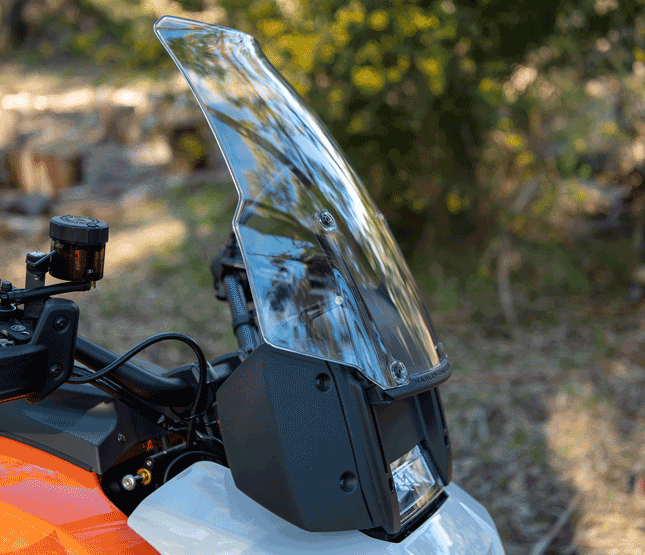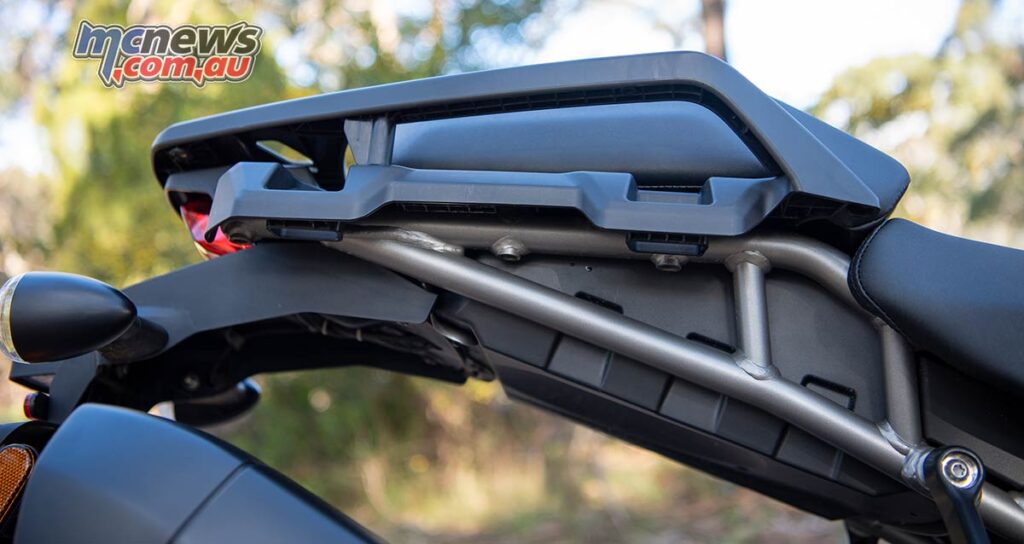2021 Harley-Davidson Pan America Review
Motorcycle Test by Wayne Vickers – Images by RbMotoLens
There are two things I thought I’d never say about a Harley. The first, is that I jumped it, the second is that it could probably be louder. Now I’ve never spent much time on Harleys. Not that I dislike them, they’ve just not been for me thus far.
My younger days were spent on sports-bikes and dirt-bikes, then as middle age kicked in I figured I no longer needed to prove to myself or anyone else how fast I was. So in recent years I’ve spent most of my time aboard adventure bikes.
And then Harley go and build this! The Pan America. A Harley adventure bike! Only slightly less expected than the electric Livewire I rode recently. Which had some shortcomings… Turns out though, I think this one is a better resolved product. Quite a bit better.
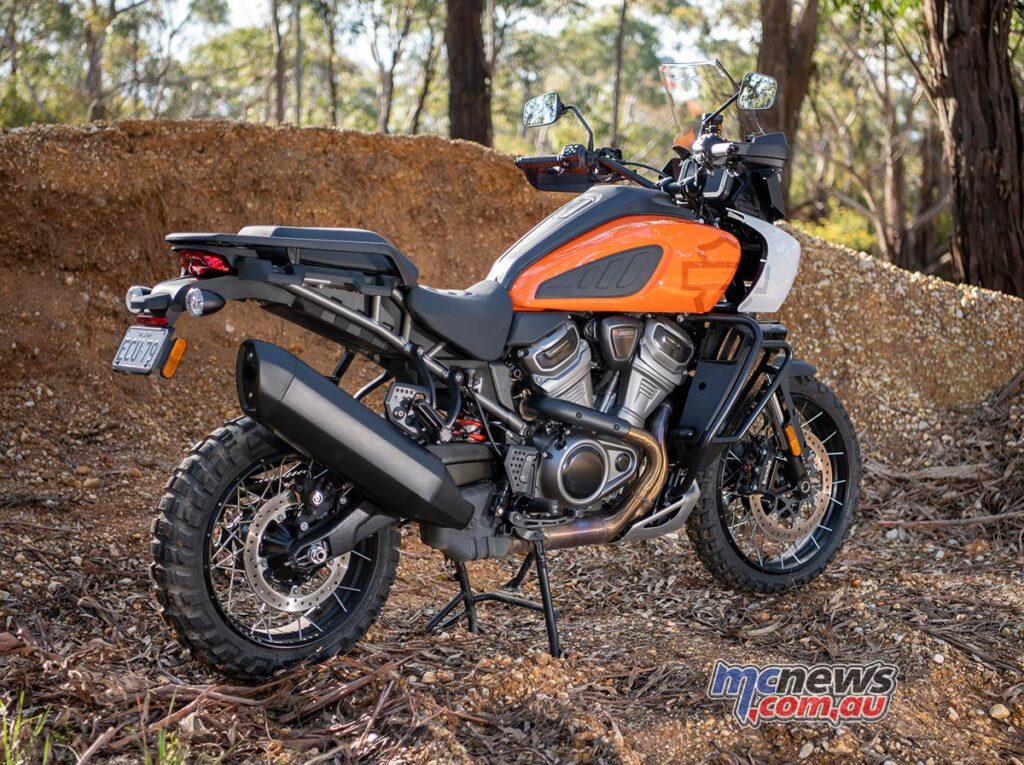
As always, Trev has a very thorough run through of the tech bits over here from when he rode it, but here’s my key summary and highlights.
- A new Revolution Max 1250 ‘trail ready’ DOHC V-twin churning out a solid 150 hp and 127 Nm that’s also used as a stressed member of the frame,
- Customisable semi-active front and rear suspension – 47 mm Showa BFF (Balance Free Forks) on the front, adaptive ride height, 191 mm front and rear travel,
- Decent radial Brembos, trick looking tubeless wheels (19 on the front and 17 on the rear) and aggressive off road tyres,
- 210 mm of ground clearance, quick adjust seat height of either 830 mm or 870 mm,
- Customisable ride modes and settings, integrated app via Bluetooth,
- All up tipping the scales at 258 kegs wet.
There’s a fair bit to take in there. Let’s talk about the new engine first. The first thing you notice when you fire it up is the exhaust note, which with the stock muffler, is quite muted. In fact, I’d say it’s overpowered by the mechanical noise of the engine. Quite un-Harley-like I thought.
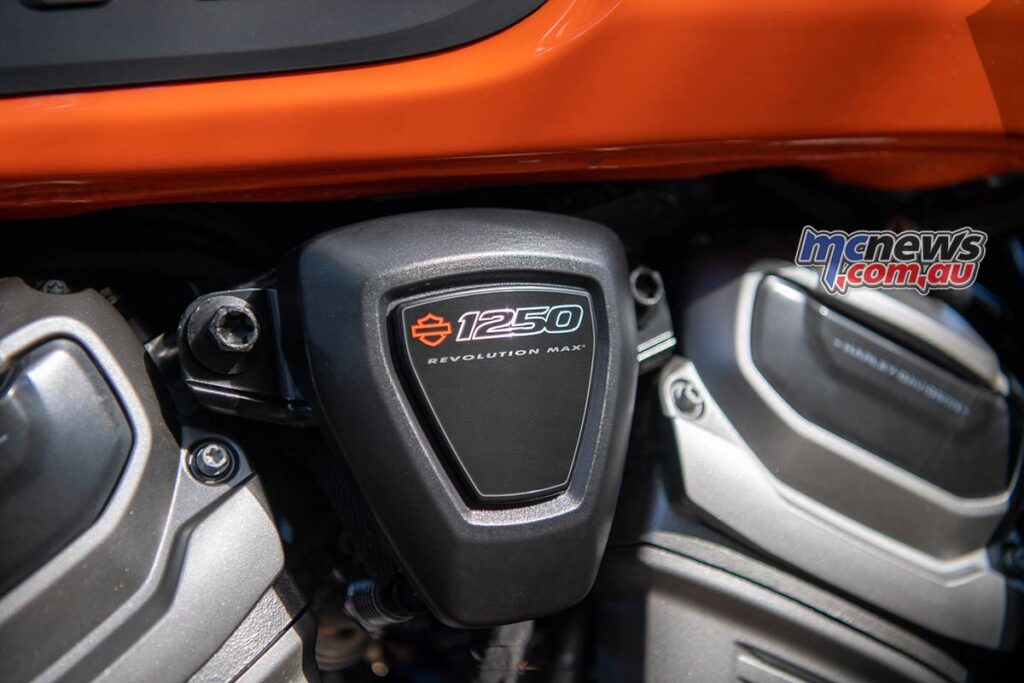
Hopefully a more open can could liberate a little of the trademark Harley throb, because it sounded much like any other V-Twin from on board, which seemed like a bit of a missed opportunity. I was probably hoping for a little more soul.
That’s about where the negativity ends though, because as a standalone engine, it performs rather nicely indeed. Excellent fuelling with smooth, solid power from right off the bottom. It just does its thing and does it easily.
On the tarmac it pulls hard – it’ll make the knobbies squirm for traction but the TC ensures it never ever gets out of shape. Just piles on the speed at will. And likewise on dirt, even down near idle it never gets bogged down and will happily lug like a tractor. It’s quite an impressive thing for a new engine out of the box. Kudos HD.
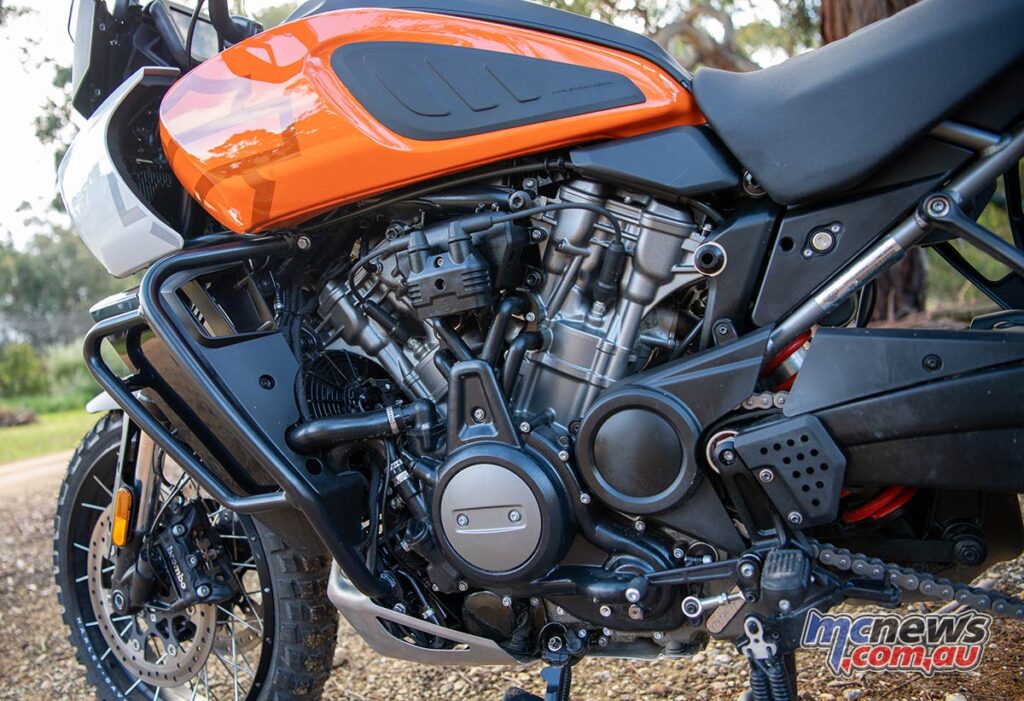
And the rest of the driveline follows suit. Both the clutch and box are pretty damn good. There’s no quick-shifter – but it shifts nicely without one. Not having one probably suits the slightly relaxed riding approach overall I’d say. More on that in a bit.
The next big one to talk about is the adjustable height and semi-active suspension. Now I’m just on 6ft, so the seat height was never really going to be an issue, but I did try the seat in the low position and it makes a massive difference to stand-over and the ease at which you can put your feet down.
So those of the shorter inseam, or indeed those perhaps more accustomed to a ride with low seats (aka, most Harley riders) are probably going to get a benefit from that… It will certainly feel a lot more familiar in the low setting than what a higher seat height might.
So it’s a smart design and clever move making it so easily adjustable. You simply remove the seat and slot it into either the upper or lower mount position and are done. 30 seconds all up. And its comfy too. You’d be able to log up big hours in the saddle without issue.
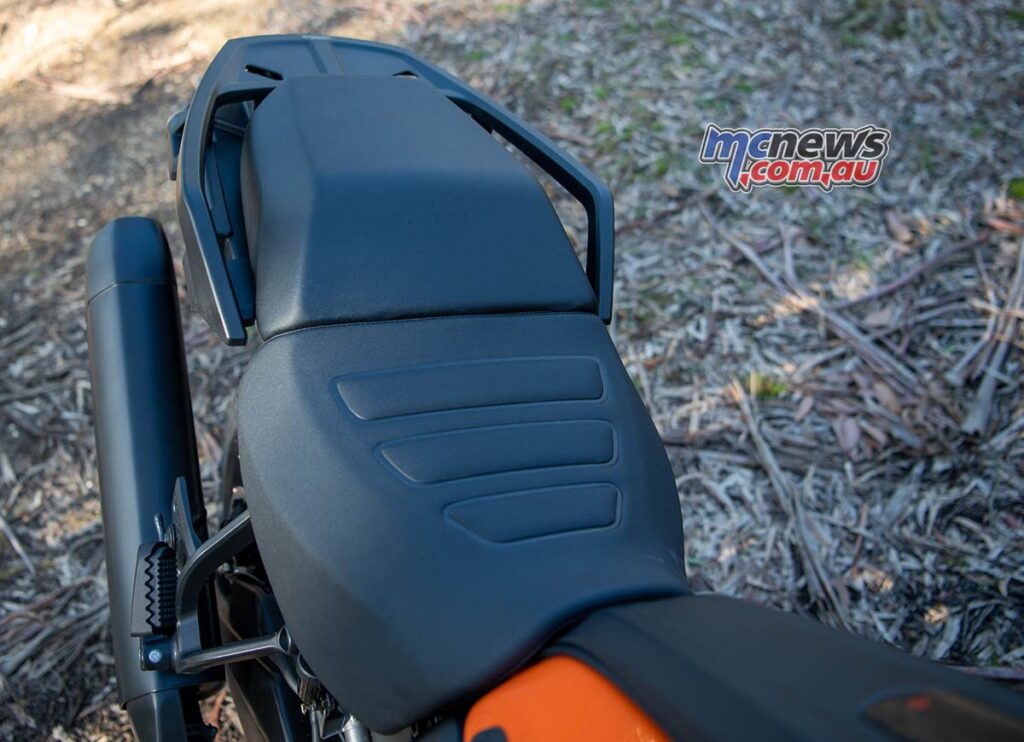
The semi-active suspension is the other ace up the Pan America’s sleeve. Trev loved it. Me… well I found it a bit unnecessary at my height and something else to potentially break at first. I have to be honest, having the suspension lower then raise as you’re coming to and away from a stop was a bit unnerving to begin with.
I kinda like my bike to be consistent. And I figured those cables dangling out there down on the left by the front wheel were ready to snag on something if you’re getting into really snotty stuff.
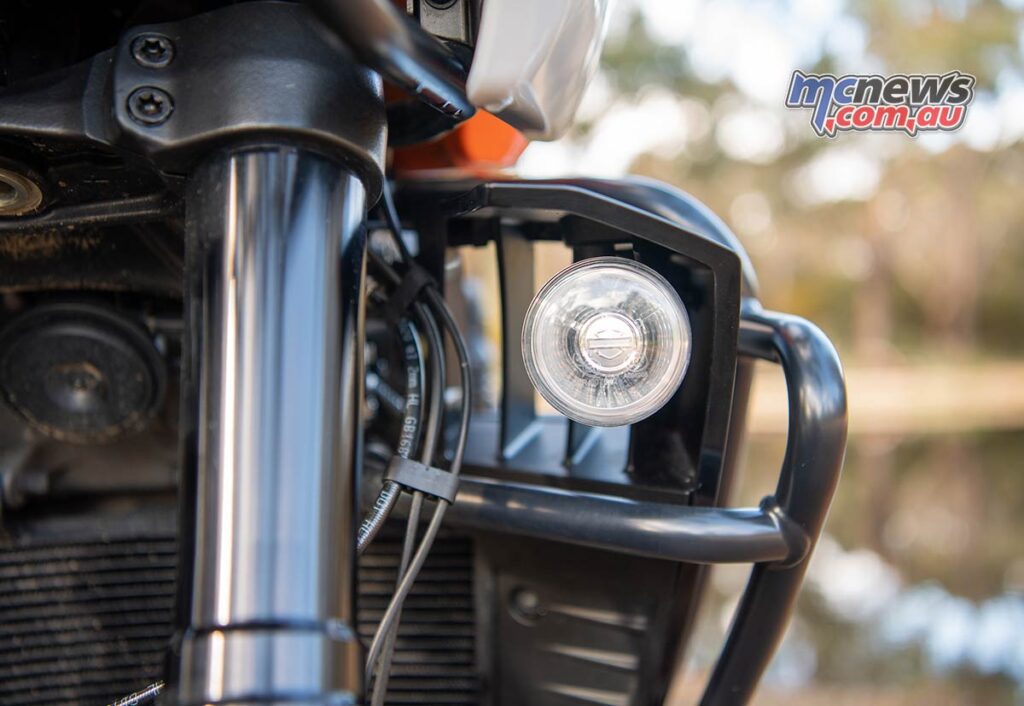
And then I rode it some more and realised that snotty is not really what it’s aimed at. It should have been obvious by the 19-inch front that this is at the extreme opposite end of the Adventure spectrum compared to the KTM 1290 Super Adventure R I most recently had to compare it to.
Where the big Kato screams ‘attack’ almost everywhere off-road, the Pan America has a far cooler head, steadier approach and encourages you to explore tracks rather than tearing it up. No it won’t go everywhere the Kato will. But it’s not meant to. This is not a big dirt bike. It’s more of an ‘any-road’ tourer. And so those cables won’t really be an issue.
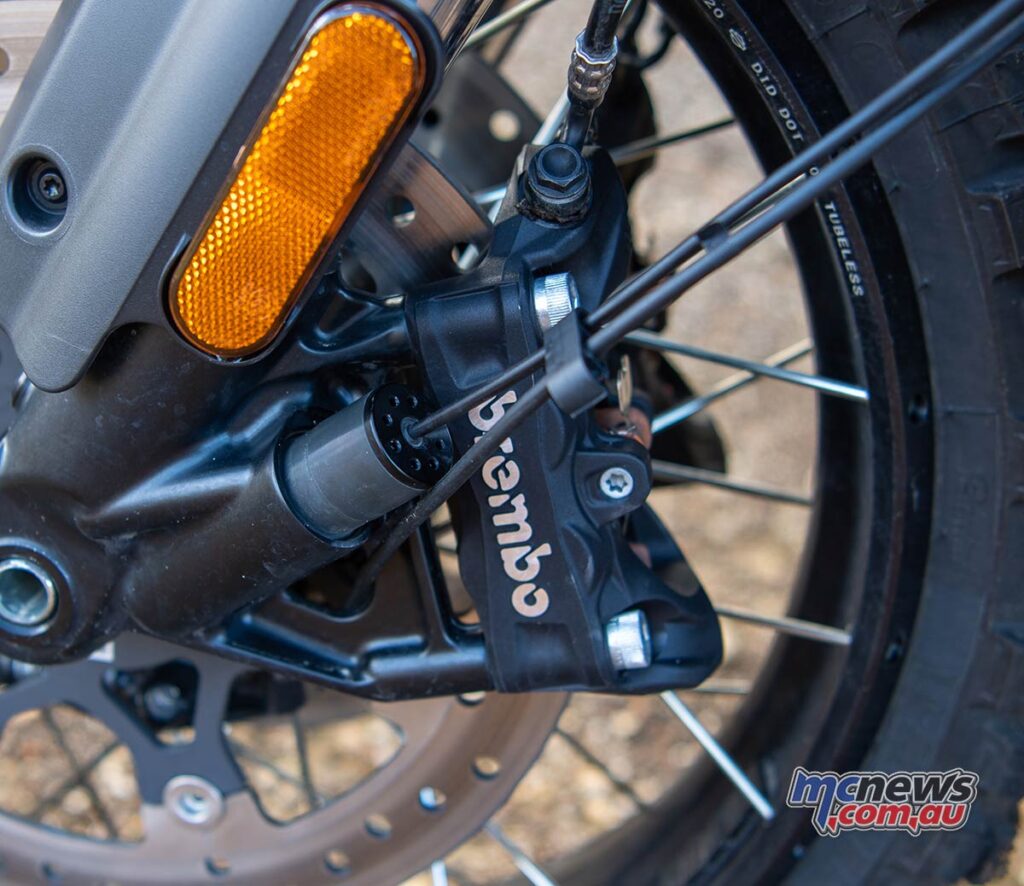
That said, it still handled the bulk of my standard gravel Adventure loop with ease. The only thing I avoided was a specific steep hill climb that has a couple of solid ledges to navigate. I probably would have managed, but didn’t want to push the envelope too much. Riding back to back with the big Kato – you just have to go at a more comfortable pace.
It will lift the front, it will jump, but you probably want to keep both of those to the small side. There’s a lot of weight there and only so much clearance and suspension travel… Once you do find your pace and rhythm though, it’s an enjoyable thing and quite easy to ride. It rarely feels heavy or cumbersome, it just… works.
On the go – in the dirt, it will bottom out if you push the bike too hard, but if you maintain a pace without going too nuts it’s a fairly capable thing. The off-road soft suspension setting is much better for solo riding. Loaded up with gear the hard setting might make sense but it’s way too harsh when smacking potholes or bumps if you aren’t loaded up.
As with all the settings I cycled through, they do make a noticeable difference. I found the throttle set at +1 to be way too abrupt from idle. But the standard setting was pretty much bang on.
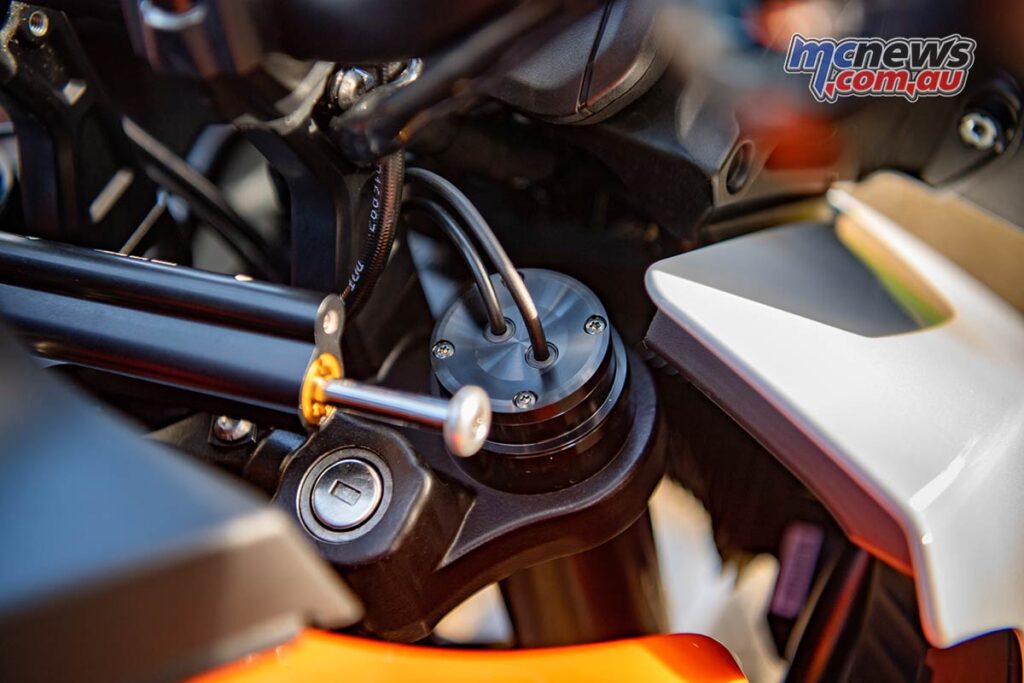
And on tarmac, it does what you’d hope a 150 hp Harley would. That tyre profile ensures it tips in eagerly, from there it settles nicely and transitions naturally on exit. It’s surprisingly well balanced throughout the corner and will change lines easily enough too. For a big bike.
I mentioned that the seat is comfy earlier, and should expand on that. The cockpit itself is a properly nice place to be. The seat is super supportive and my butt approved of the shape, the ergos overall are good for both sitting and standing. The reach to the bars feels natural too.
Along with the two-position adjustable seat height, you can switch between three brake pedal positions as well – without using a tool. So dialling the bike in to suit you and how you ride is a doddle.
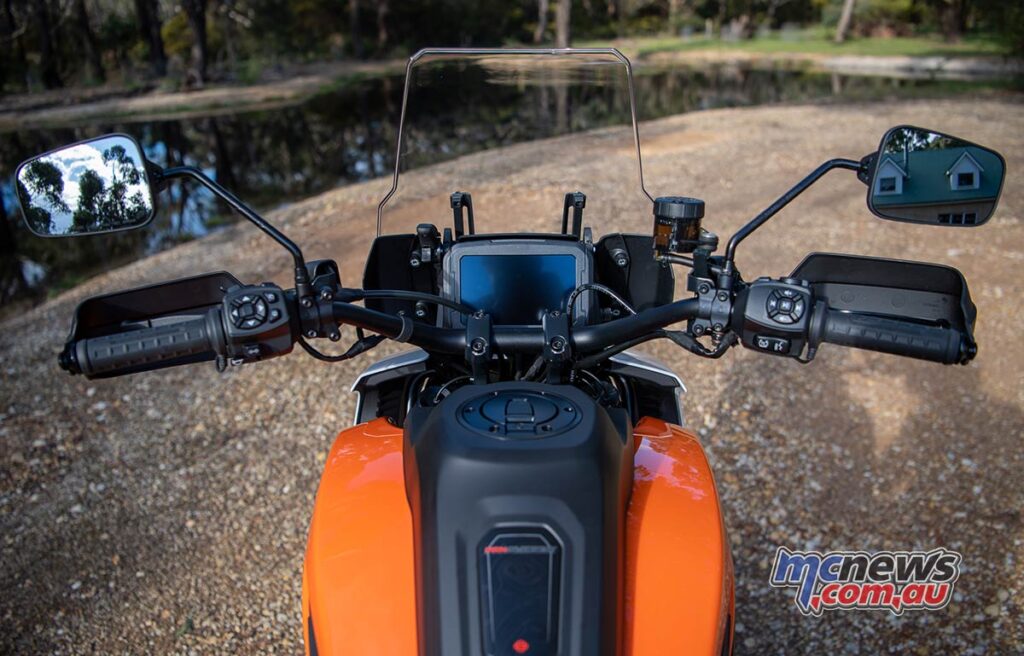
Let’s talk electronics for a bit. It feels like it has a million ride modes. Including two that are customisable. Again, some might take advantage of all of them. I did like the fact that you can customise which ones actually get displayed and ignore the ones you don’t want. See ya rain mode – you aren’t necessary. Not when you already have traction control and when street mode is so nice and predictable.
The best mode however is hidden. The ‘proper’ off-road mode that disables the rear ABS and TC only appears when you press and hold the mode button for a bit. That’s the one you want to be playing with off-road if you want to be able to get some decent slides going and steer with the rear. It’s good. Not just good for a manufacturer’s first crack at a new segment, but proper good.
Worth pointing out that neither custom mode can have the TC turned off, you can only change it to ‘off road’ mode. Even the hidden mode retains some TC by the feel of it. But it’s diluted enough to achieve big grins.
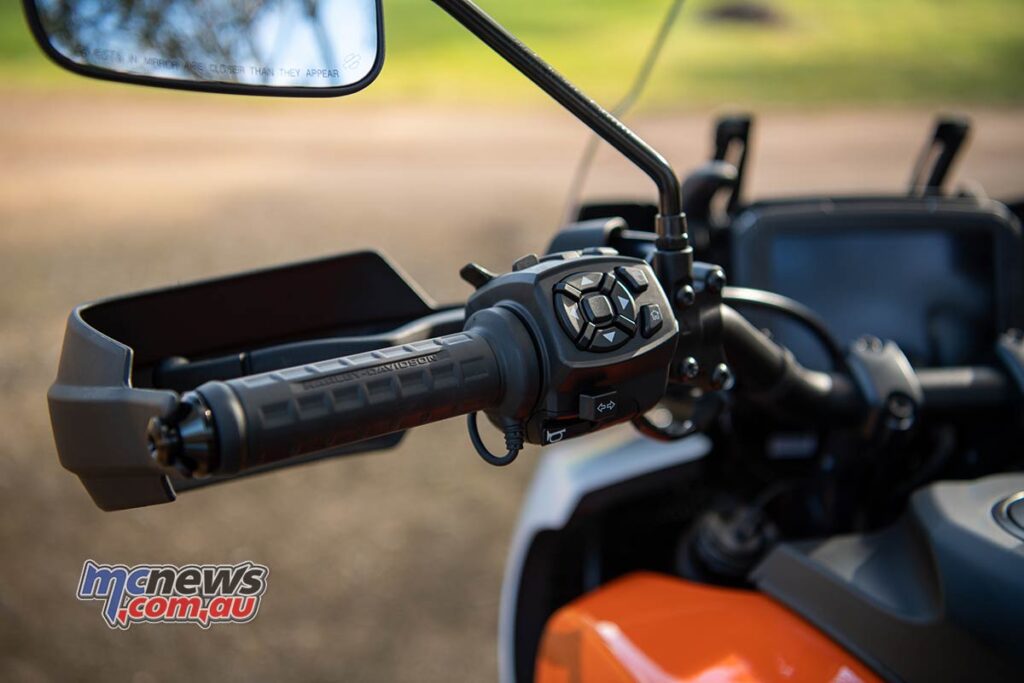
Switchgear-wise, they’ve moved the indicators back to a traditional ‘all on the left’ location (having the right indicator on the right hand side makes no sense to me and shitted me on the Livewire). There’s a fair bit going on with the switchgear. Nothing overtly worse than I’m seeing on a lot of other bikes though – not sure that’s a great trend. Simple is good, please.
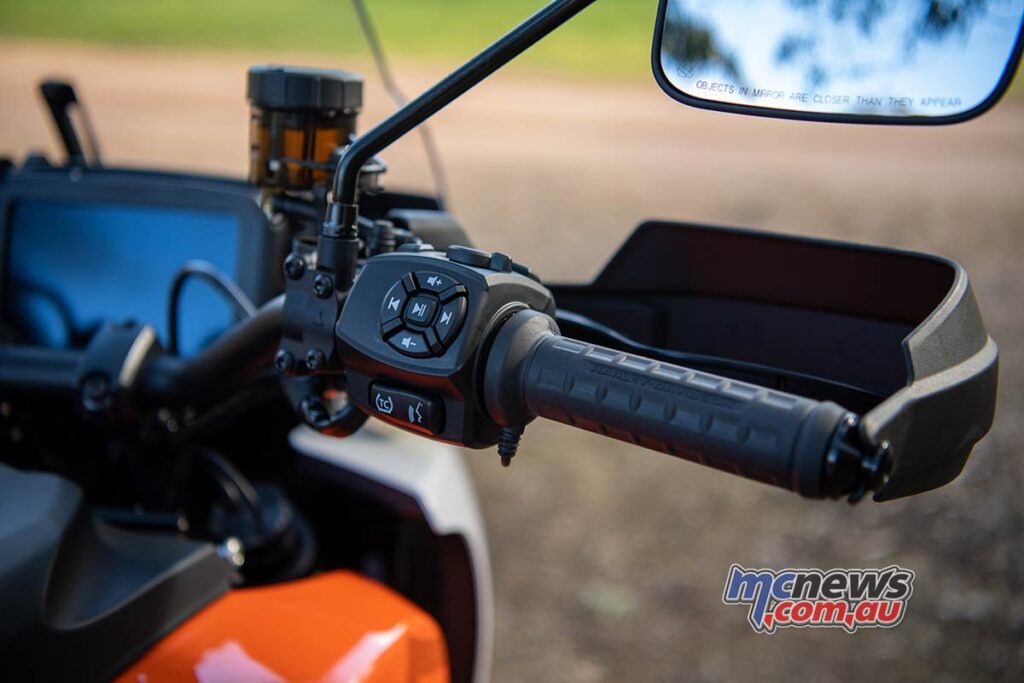
Overall styling is, well, ‘unique’ forward of the handlebars… Not sure I’m a fan of that headlight box treatment but it’s definitely better in the metal than in pics.
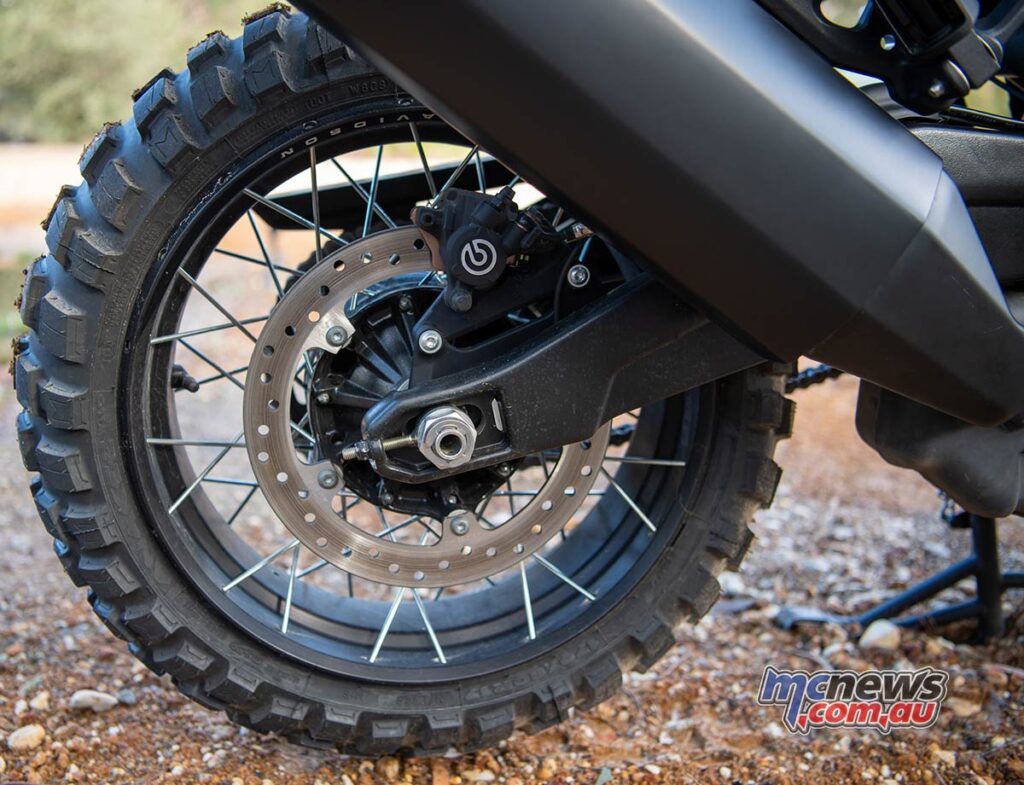
From the bars back though it looks tough. Those tubeless wheels look very trick, but with the perimeter positioning of the spokes they’re an absolute pain in the arse to clean.
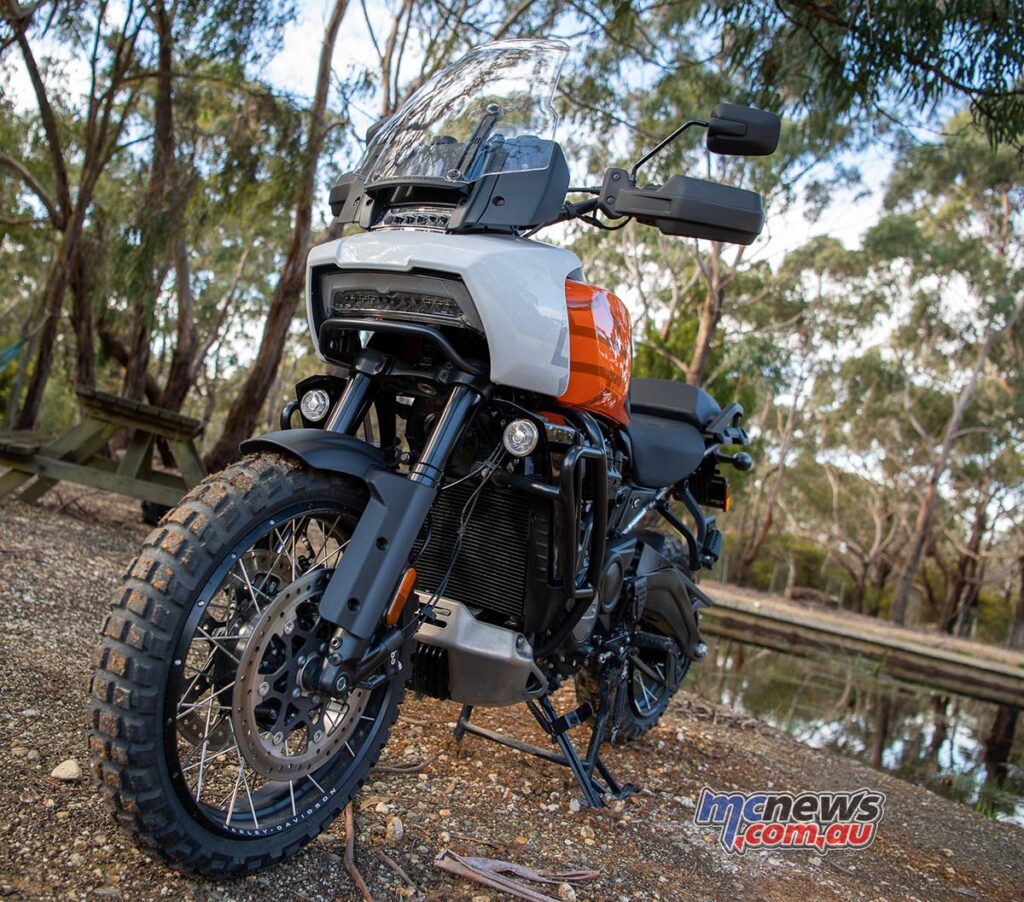
Crash bars look like a sturdy, well thought out design and follow the good build quality all over, the only thing to call out there is that I reckon the plastic strip on the tank will scuff easily. It was already starting to show marks on the bike I rode.
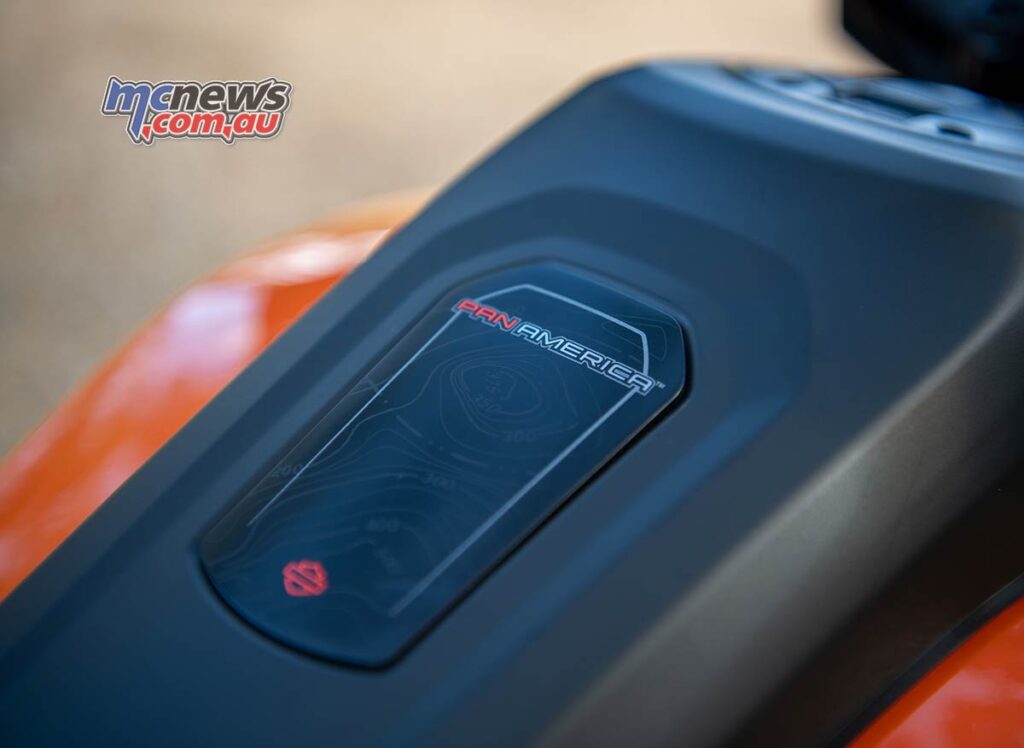
Other niggles? Only a couple really. The dash has some text that’s too small to read and is grey on black, which makes it harder again. It’s accentuated by rain drops… It’s not a bad layout in theory and I’m sure it looks great on the designer’s screen, but I found it unnecessarily small in font size across the board and a few little layout details that could have been improved upon. I admit I’m a bit anal about dash designs though… that’s what years of being a digital designer will do to you.
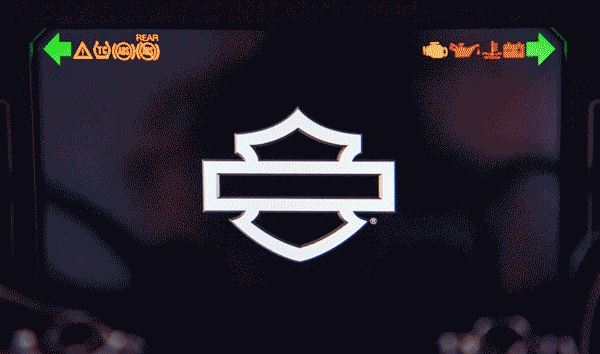
And the side stand is a bit shit. It’s difficult to find with your foot, is short and the way it’s ‘sprung’ means that it will still allow the bike to lean over further after it first touches down on the deck. Which means the ‘foot’ will also slide sideways on your concrete floor. Not ideal.
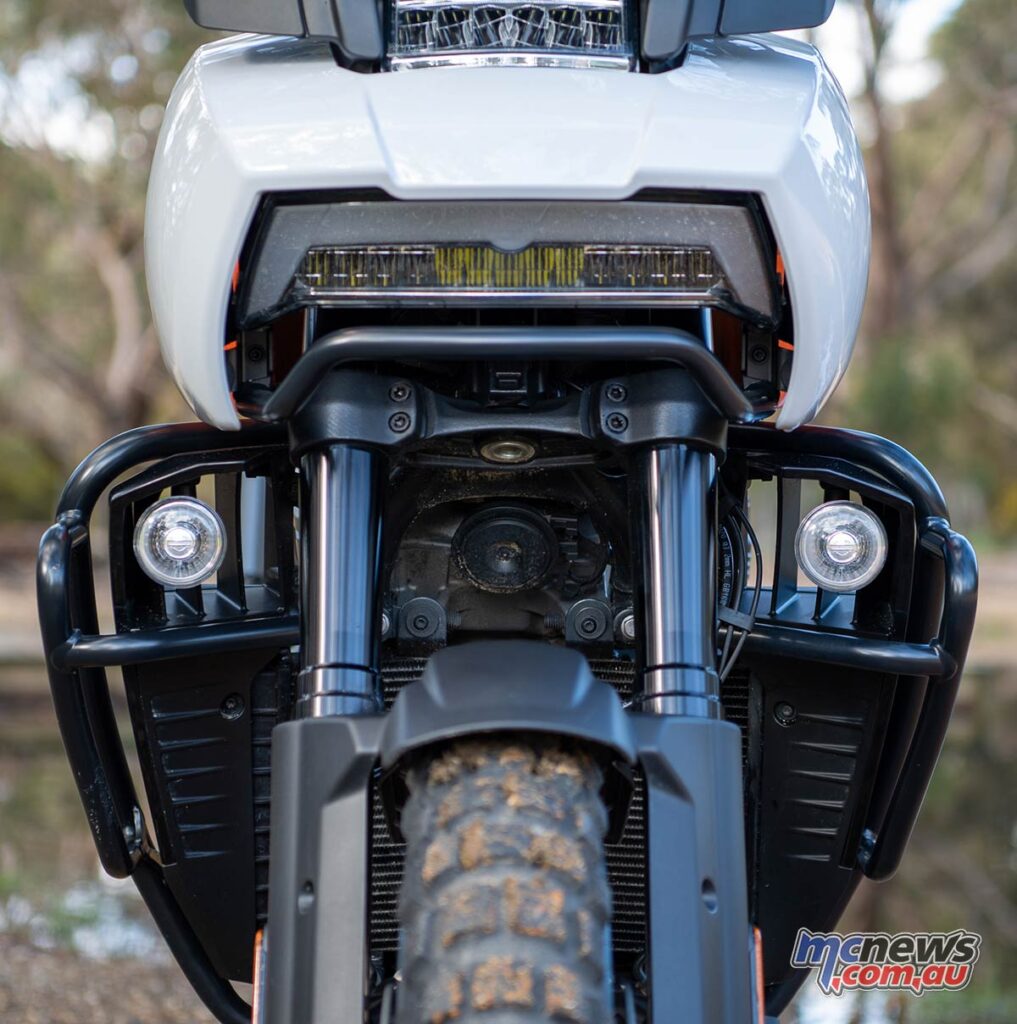
All in all though, the Pan America surprised me. Certainly those aggressive tyres help things in the dirt but it handled most obstacles fairly easily – again – as long as you stay aware of the suspension (and wheel size) limitations. It’s not a dirt bike, but lives at the softer end of the adventure spectrum, while still having plenty of hump on the road and behaving itself on both surfaces quite nicely. I’m happy to report that this Harley is one that stacks up.
Price wise, well there’s a decent price of admission. Thirty three and a half big ones if you pony up for the spoked wheels and adaptive ride height – which I’d argue most will. There is certainly some competition at that price point, but it’s a different proposition to most by the badge alone.
That alone will garner some sales, especially from existing Harley riders looking to step sideways to something that will take them off the beaten track. And this will do just that. Nicely done
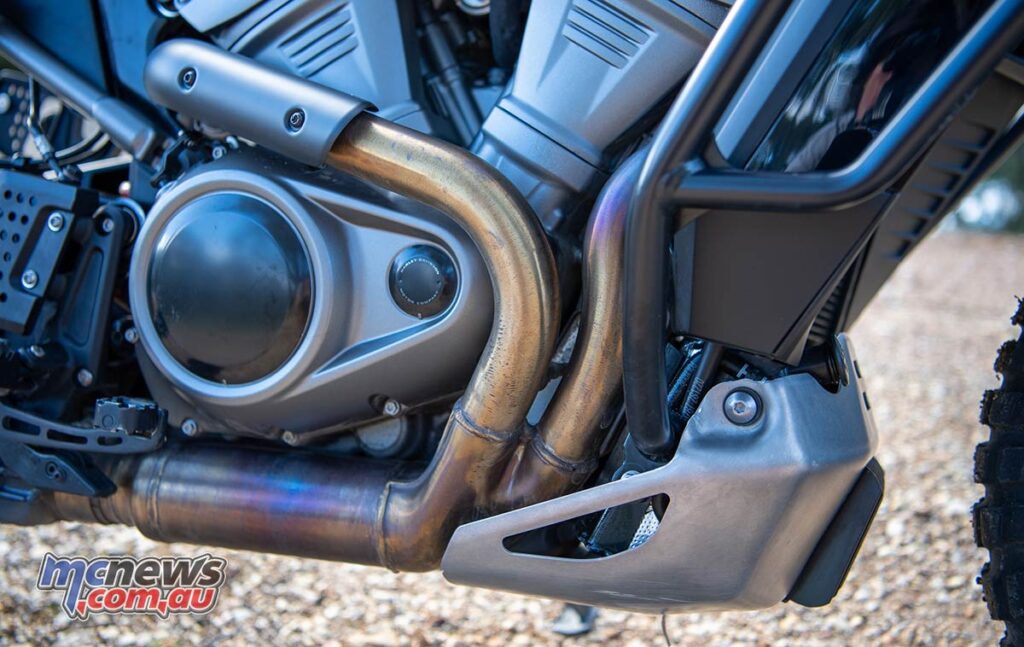
Why I like the Harley Pan America
- Impressive new model debut
- Mechanically it’s pretty damn good everywhere
- The adaptive ride height and low seat height combo will definitely win fans
- A different kind of (off-) street cred and meets the design brief very nicely
I’d like the Pan America more if…
- Can we get an exhaust note that’s a bit more… Harley?
- That side stand needs some work
- And the dash design does too
- Design is perhaps a little polarising
| Harley-Davidson Pan America Specifications | |
| Engine | Liquid-cooled, DOHC, 60-Degree V-Twin |
| Displacement | 1,252 cc |
| Bore X Stroke | 105 mm x 72 mm |
| Power | 150 horsepower at 8750 RPM |
| Torque | 127 Nm at 6750 rpm |
| Compression Ratio | 13:01 |
| Fuel System | Electronic Sequential Port Fuel Injection (ESPFI) |
| Exhaust | 2-into-1-into-1; catalyst in header |
| Charging | Three-phase, 45 Amp system (300 Watts @13 Volts, 1200 rpm, 585 Watts max power @ 13 Volts, 2250 rpm) |
| Electric Power Outlet | USB C-Type , Output 5V at 2.4 Amp |
| Drivetrain | Chain Driven |
| Front Fork | 47 mm USD Fork with compression, rebound and preload adjustability. Special model only: Electronically adjustable semi-active damping control. |
| Rear Shock | Linkage-mounted piggyback monoshock with compression, rebound and preload adjustability. Special model only: Automatic electronic preload control and semi-active compression & rebound damping on Special model. |
| Suspension Travel | 190 mm front and rear |
| Rake | 25 degrees |
| Trail | 4.3″ |
| Wheelbase | 1580 mm |
| Ground Clearance | 210 mm |
| L x W x H | 2265 mm x 965 mm x 1510 mm |
| Seat Height | 850 mm (830 in low position or 870 in high position) |
| Front Tyre | 120/70R19 60V Michelin Scorcher Adventure, Radial |
| Rear Tyre | 170/60R17 72V Michelin Scorcher Adventure, Radial |
| Wheels | 19 x 3 in. (F) 17 x 4.5 in. (R) – Cast alloy, spoked rims optional |
| Front Brake | 320 mm twin discs. Radially mounted, monoblock, 4-piston caliper, with cornering ABS |
| Rear Brake | 280 mm disc. Floating single piston caliper, with cornering ABS |
| Display | 6.8 inch viewable area TFT display with speedometer, gear, odometer, fuel level, clock, trip, ambient temp, low temp alert, side stand down alert, TIP over alert, cruise, range and tachometer indication, BT capable – phone pairing to access phone calls, music, navigation (H-D App ONLY) |
| Oil Capacity | 4.5 l |
| Coolant Capacity | 2.2 l |
| Service Interval | 8000 km |
| Fuel Capacity | 21 litres |
| Fuel Economy | 4.9 l/100 km |
| Weight (Fully Fueled) | 254 kg |
| Gross Vehicle Weight Rating | 455 kg |
| Warranty | 24 months (unlimited mileage) |
| Ride Away Price | $31,995 Ride Away – $33,480 with spoked rims and adaptive ride height |
